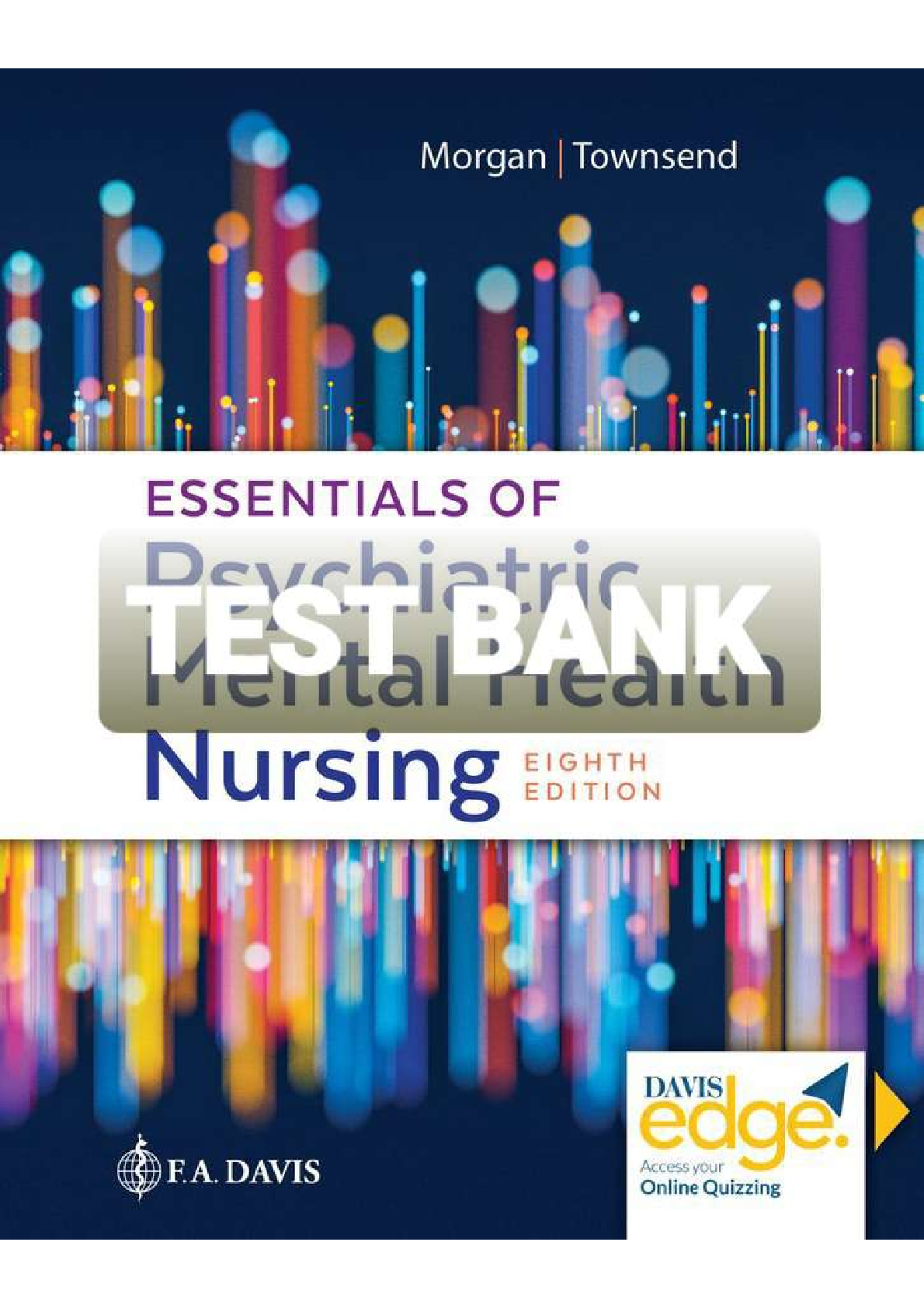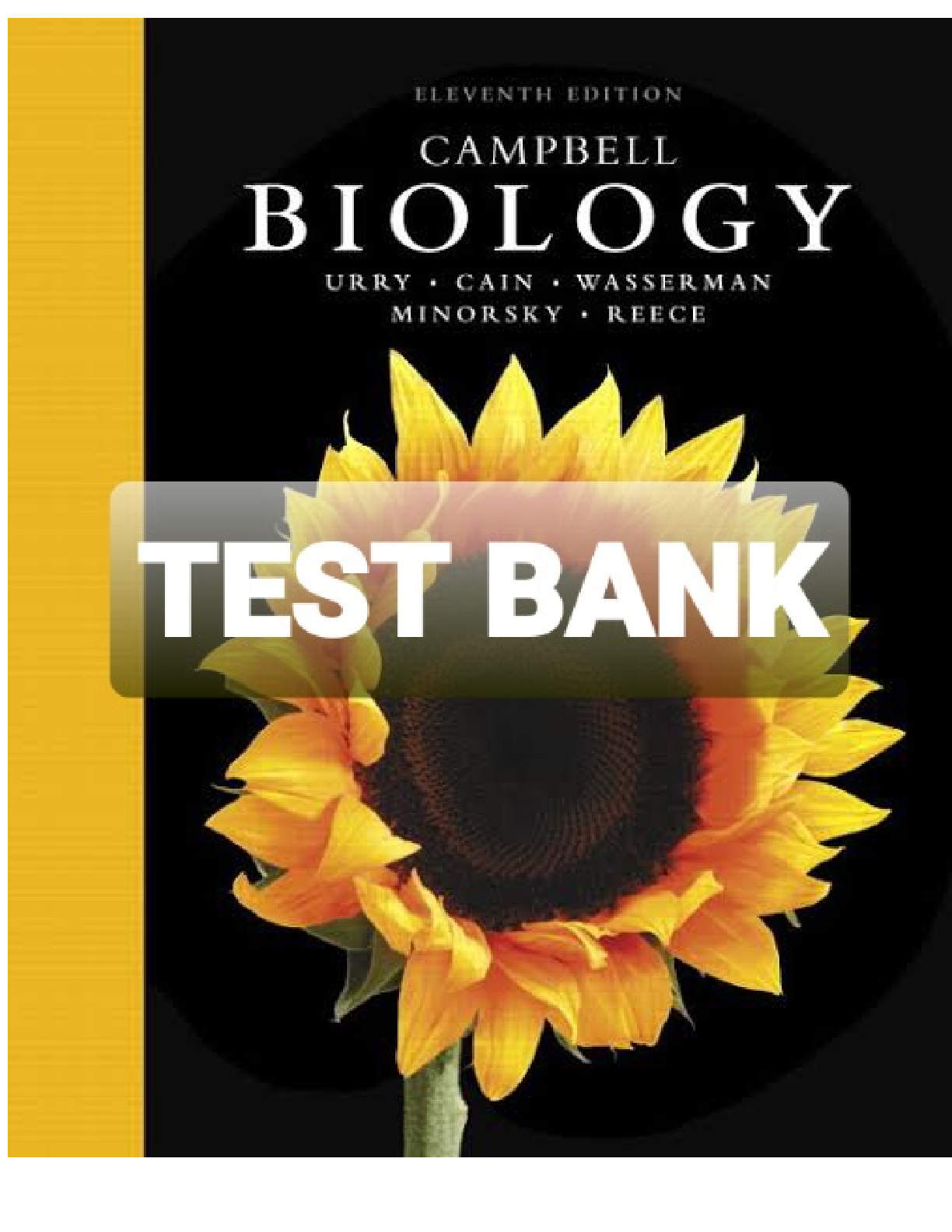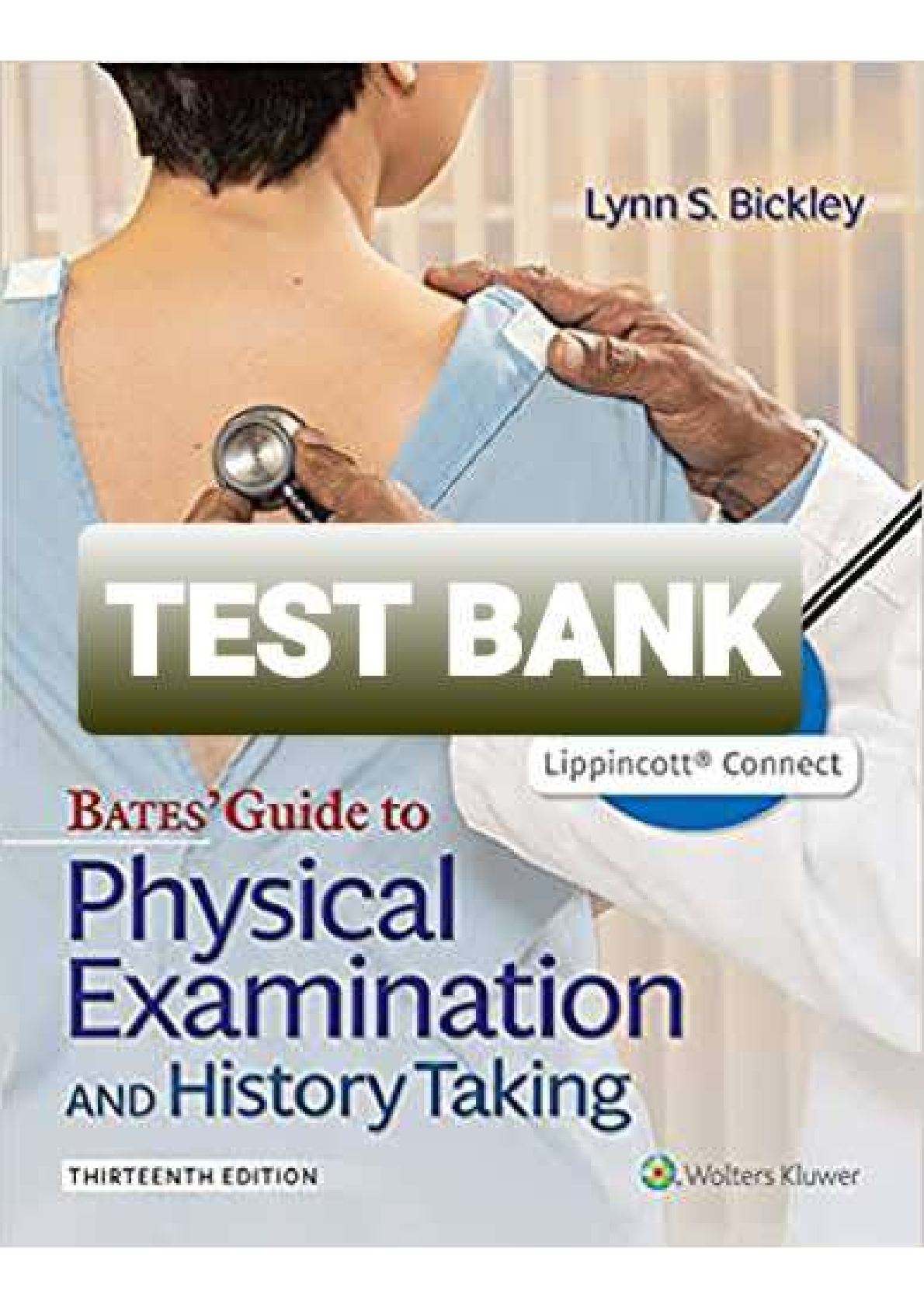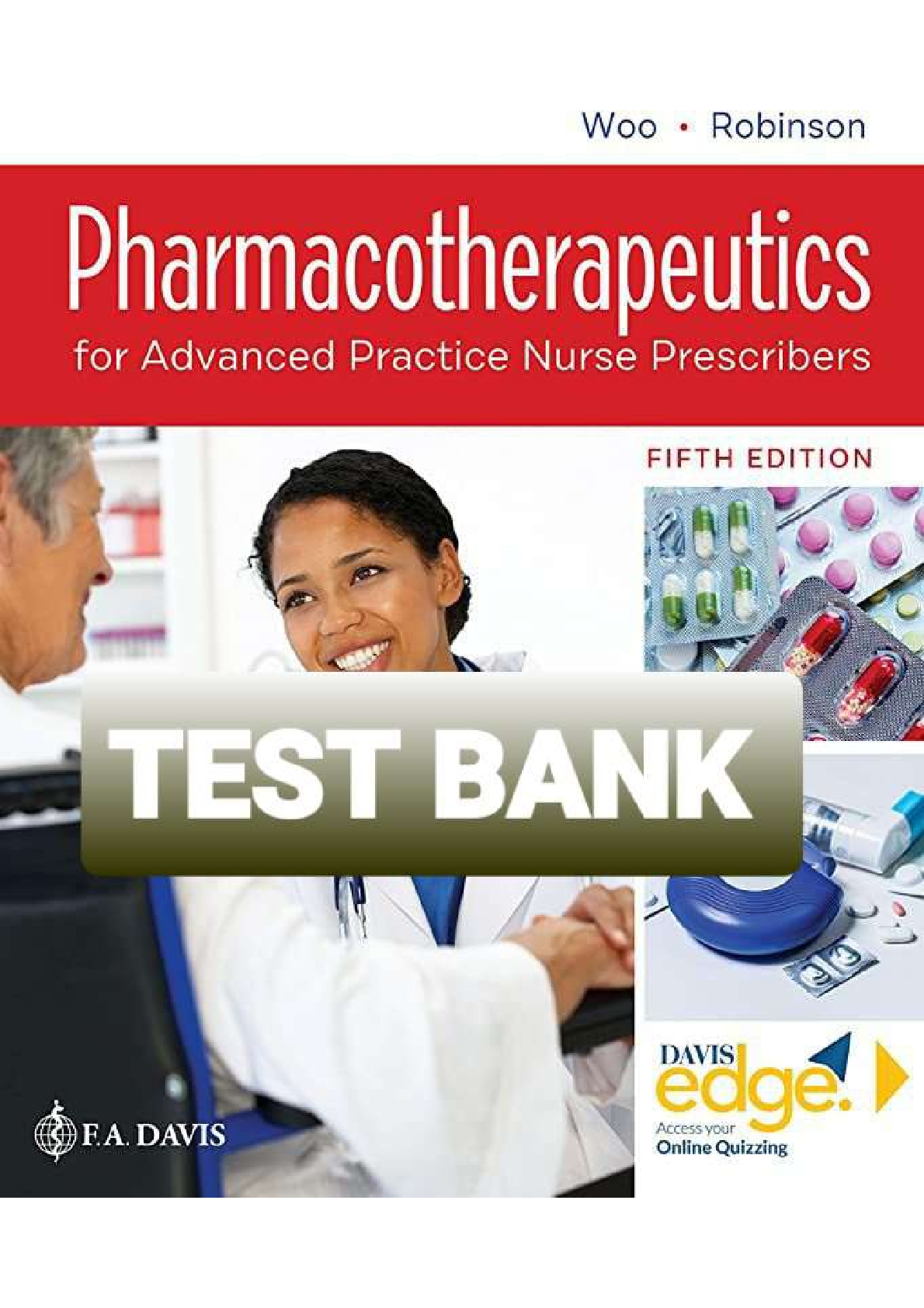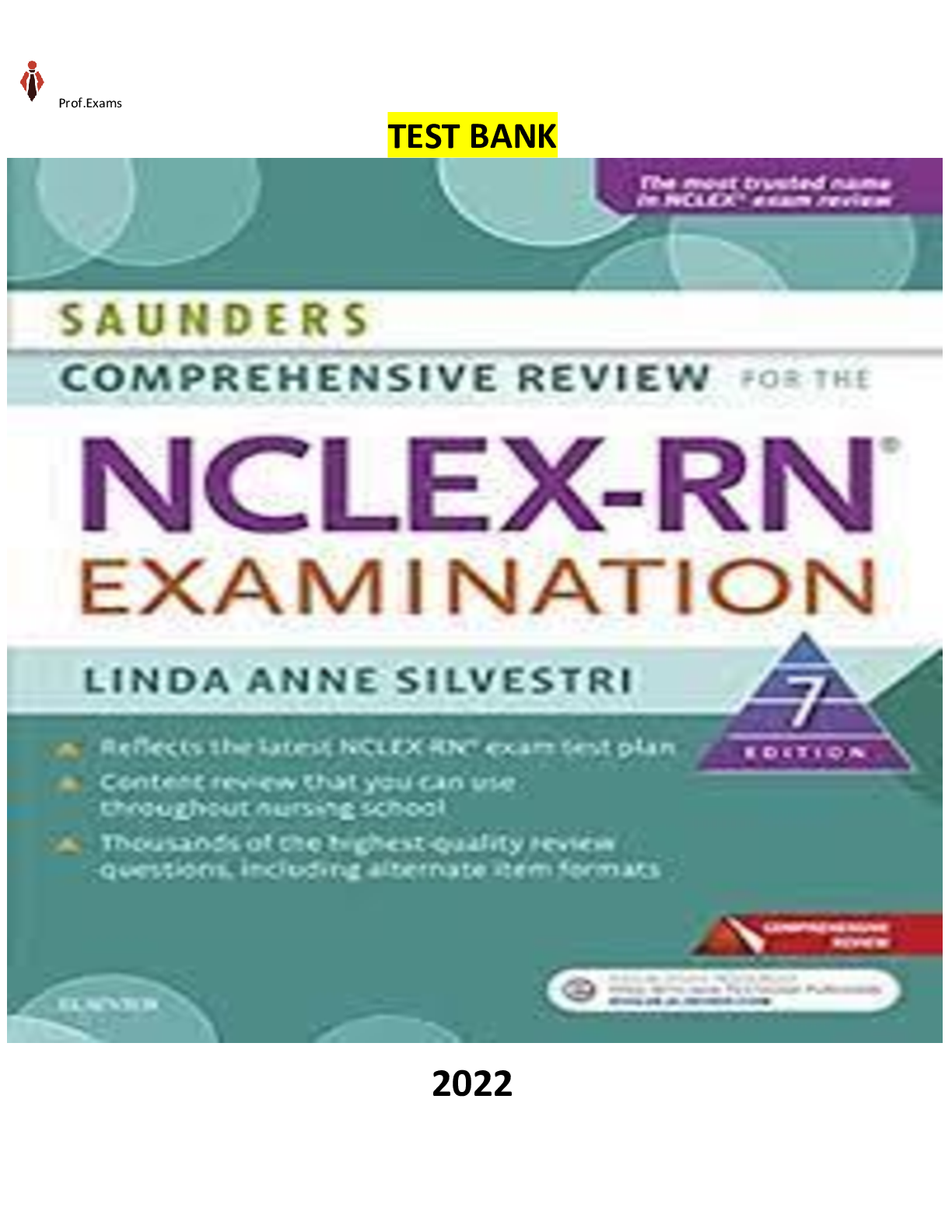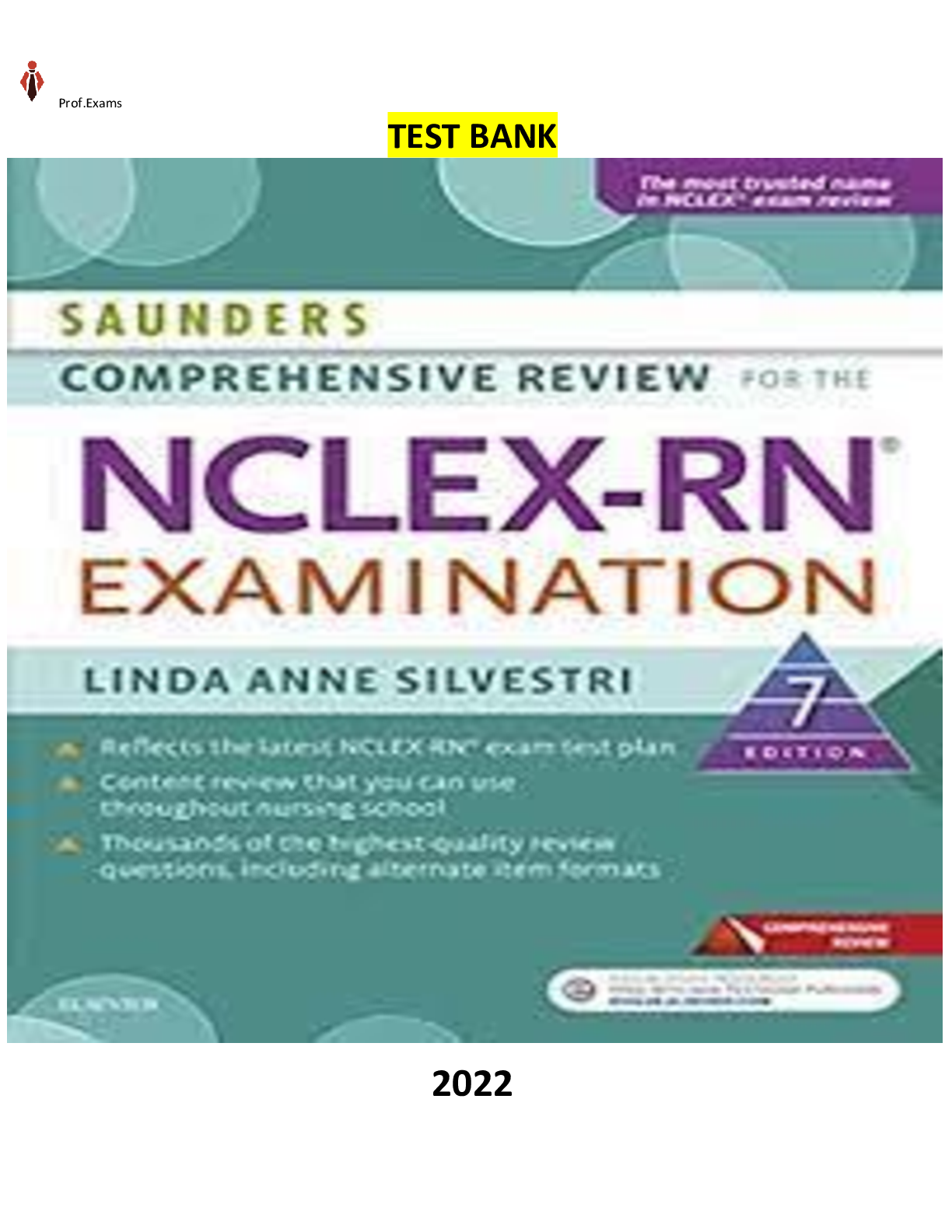*NURSING > TEST BANKS > HESI COMPREHENSIVE REVIEW FOR THE NCLEX-RN EXAMINATION 5TH EDITION By E. TINA CUELLAR (All)
HESI COMPREHENSIVE REVIEW FOR THE NCLEX-RN EXAMINATION 5TH EDITION By E. TINA CUELLAR
Document Content and Description Below
A. Understanding the question 1. Determine whether the question is written in a positive or negative style. a. A positive style may ask what the nurse should do or ask for the best or first action ... to implement. H E S I H i n t Most questions are written in a positive style. b. A negative style may ask what the nurse should avoid, which prescription the nurse should question, or which behavior indicates the need for reteaching the client. H E S I H i n t Negative-style questions will contain key words that denote the negative style. Examples 1. “Which response indicates to the nurse a need to reteach the client about…?” (Which information/understanding by the client is incorrect?) 2. “Which prescription (order) should the nurse question?” (Which prescription is unsafe, not beneficial, inappropriate to this client situation, etc…?) 2. Find the key words in the question. a. Ask yourself which words or phrases provide the critical information. b. This information may be the age of the client, the setting, the timing, a set of symptoms or behaviors, or any number of other factors. c. For example, the nursing actions for a 10-year-old 1-day postop are 19 different from those for a 70-year-old 1-hour postop. 3. Rephrase the question in your own words. a. This will help you eliminate nonessential information in the question and help you determine the correct answer. b. Ask yourself, “What is this question really asking?” c. While keeping the options covered, rephrase the question in your own words. 4. Rule out options. a. Based on your knowledge, you can probably identify one or two options that are clearly incorrect. b. Physically mark through those options on the test booklet if allowed. Mentally mark through those options in your head if using a computer. c. Now differentiate between the remaining options, considering your knowledge of the subject and related nursing principles, such as roles of the nurse, the nursing process, the ABCs (airway, breathing, and circulation), CAB (circulation, airway, and breathing for cardiopulmonary resuscitation [CPR]), and Maslow’s hierarchy of needs. B. General guidelines about test taking 1. Consider the content of the question and what the question is asking. 2. Generally, an assessment of the client occurs before an action is taken. 3. Identify the least invasive intervention before taking action. 4. Have all the necessary information and take all possible relevant actions before calling the physician or health care provider. 5. Determine which client to assess first (e.g., most at risk, most physiologically unstable). 6. Identify opposites in the answers. a. Example: prone/supine; elevated/decreased b. Read VERY carefully; one is likely to be the answer, BUT not always. c. If you do not know the answer, choose the most likely of the “opposites” and move on. 7. Take into account a client’s lifestyle, culture, and spiritual beliefs when answering a question. C. Use CRITICAL THINKING, reasoning, and common sense to answer questions. 1. DO respond based on… a. Client safety b. ABCs c. CAB for CPR d. Caring e. Incorporation of culture and spiritual practices f. Scientific, behavioral, and sociologic principles g. Communication (spoken and written, e.g., documentation) with client, family, and colleagues and other health care professionals h. Principles of teaching/learning [Show More]
Last updated: 2 years ago
Preview 1 out of 873 pages
 5TH EDITION E.png)
Buy this document to get the full access instantly
Instant Download Access after purchase
Buy NowInstant download
We Accept:

Reviews( 0 )
$20.00
Can't find what you want? Try our AI powered Search
Document information
Connected school, study & course
About the document
Uploaded On
Oct 30, 2021
Number of pages
873
Written in
Additional information
This document has been written for:
Uploaded
Oct 30, 2021
Downloads
0
Views
112

JOSEPH J.png)
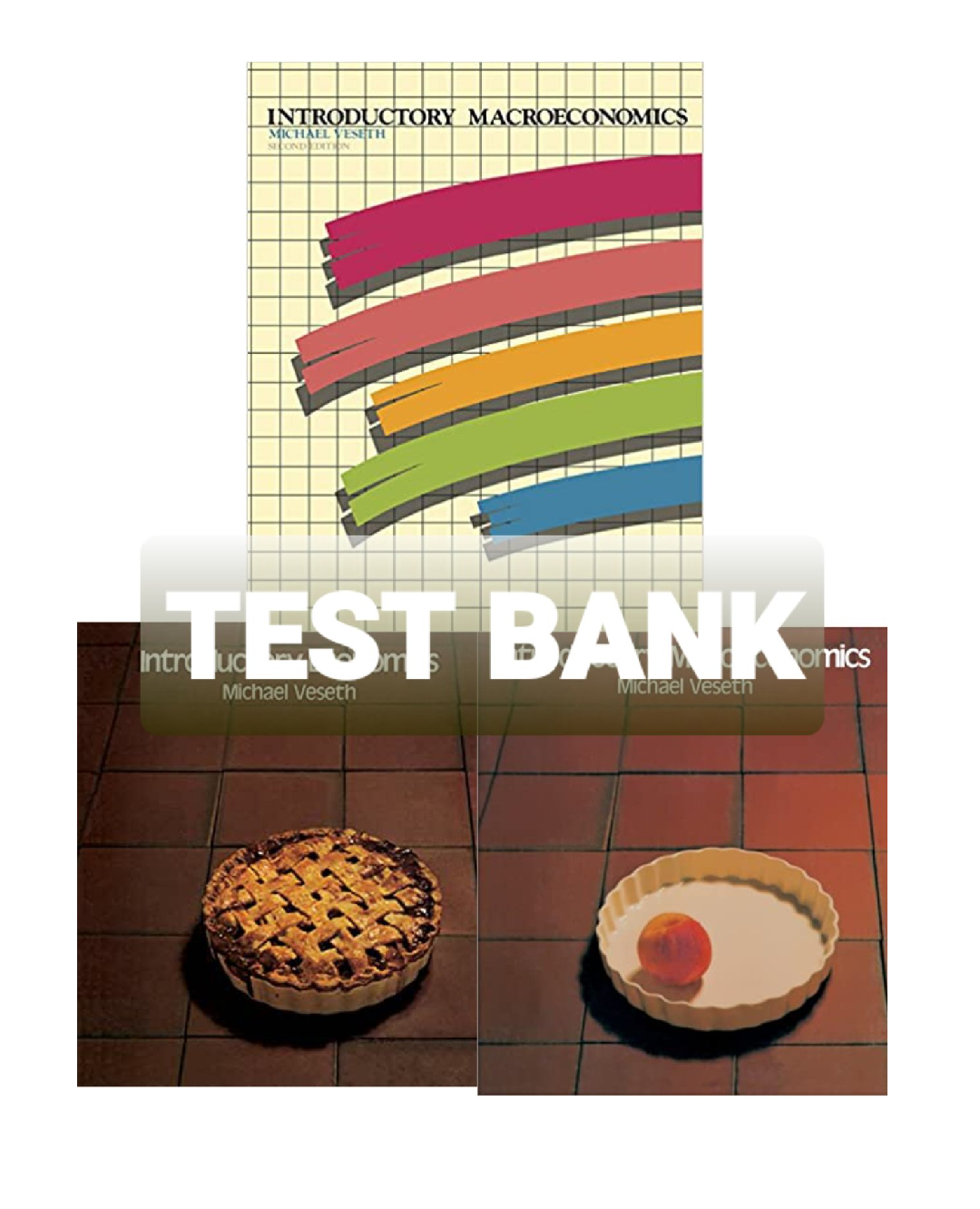

 TO ACCOMPANY ELEMENTARY STATISTICS (2001, Addison-Wesley) MARIO F.png)
 JERRI K.png)


